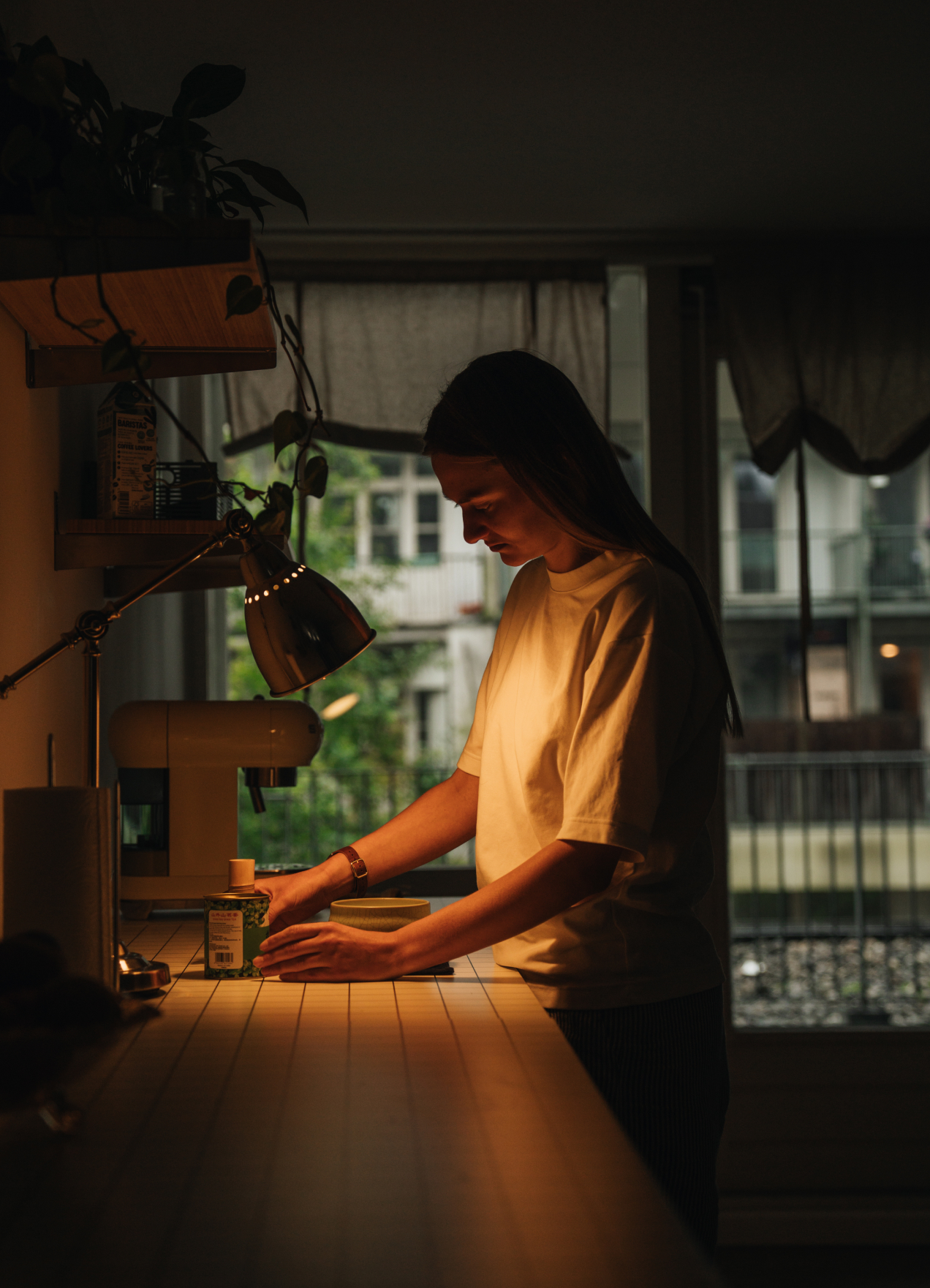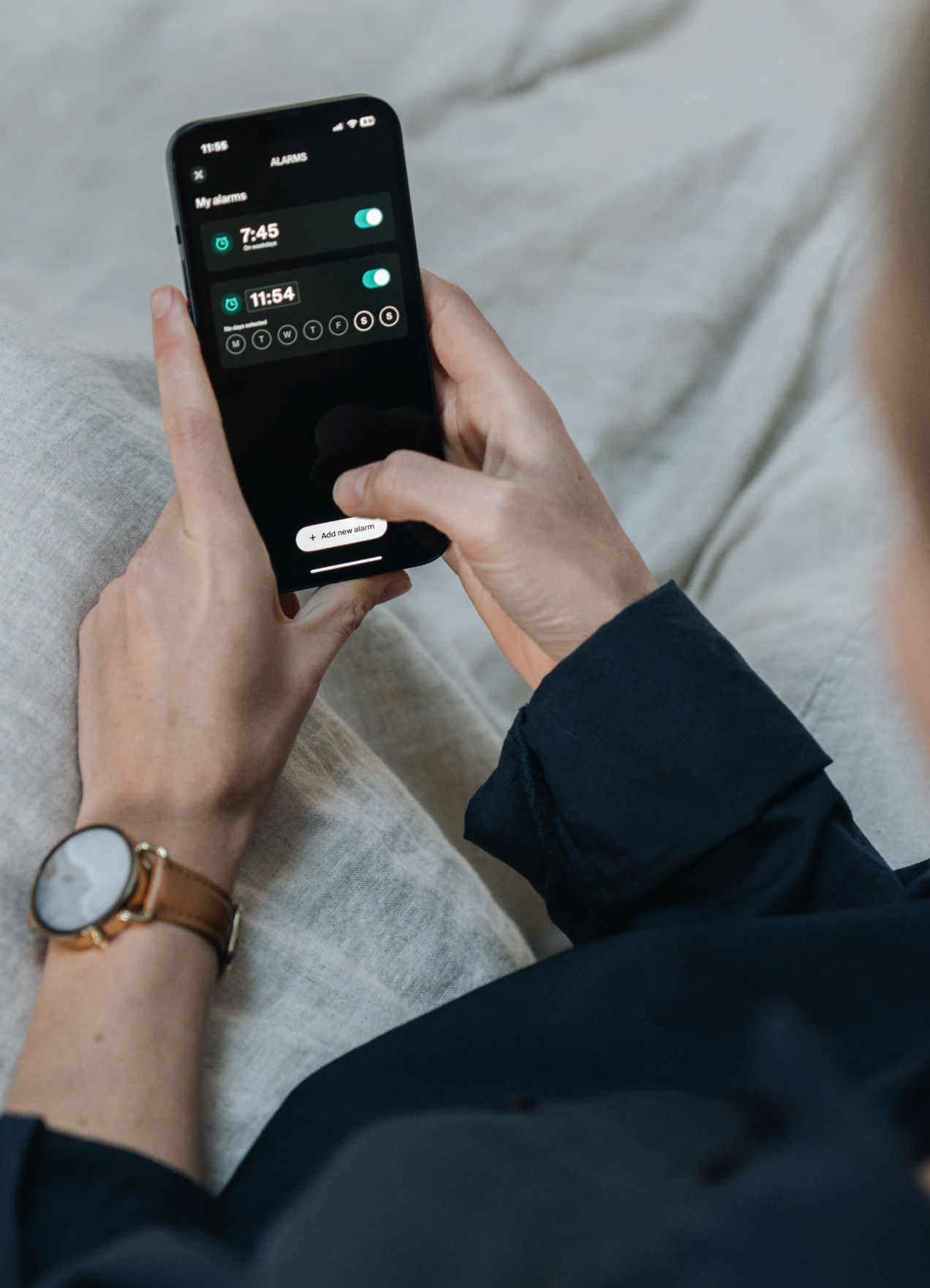Imagine the moment just before your eyes blink open in the morning. Your mind is calm and receptive. As your eyes open, what do you reach for? What’s the first thing you see? If you instinctively grab your phone—you’re not alone—but you are disrupting your body’s internal rhythm. Starting your day with a phone screen’s blue light instead of natural UVA daylight actively works against your circadian health.

What Is Circadian Health?
Your body runs on an internal clock, also known as the circadian rhythm. During this roughly 24-hour cycle, certain hormones are released at specific times of the day. When your circadian health is running by design, cortisol is released in the morning to help wake you up, and melatonin in the evening to help you fall asleep. Light exposure, natural and artificial, is a main factor impacting our circadian health. Modern trends—you guessed it, more screens—have significantly influenced our circadian rhythm, and consequently, our stress.
Choosing the Right Light
These days, we see a lot more electric light than our predecessors. Blue light, which is emitted from screens, is a constant, and exposure to natural UVA sunlight has significantly decreased as we spend more time indoors working in offices or driving in cars. This imbalance disrupts our circadian health and leads to the following:
- Later bedtimes
- Trouble falling asleep
- Higher spikes in cortisol
- More stress
Studies have shown that removing artificial light and instead exposing our eyes and skin—specifically the amino acids and light receptors in both—to natural light, dramatically improves our circadian health by linking our internal clock to the sun cycle. In other words, you feel more awake as the sun rises and find sleep easier after the sun sets.


Finding Sustainable Balance
Eliminating screens and living full-time by a natural light-dark schedule is, admittedly, a bit of a reach. But taking steps toward a more harmonious balance and improved circadian health is within your power. When you wake up, don’t reach for your phone. First, expose your eyes directly to the daylight. Even if you live in a grey climate, sunlight still filters through the clouds. If you are awake while it’s still dark out, do what’s possible to limit screen time until the sun rises.
As the sun sets, melatonin naturally increases in the body. Exposure to artificial light signals your body to stop making this hormone and ramp up cortisol instead, causing stress and delaying sleep. Swap scrolling for non-screen-related activities like reading, yoga, or cooking. If you’re working late, make sure your device is on night mode which replaces the blue light with red light, and try wearing blue-light-blocking glasses.

Wake up in the morning with a silent alarm on your wrist instead of reaching for your phone first thing in the morning.

Make changes that are sustainable for your life. Restoring balance with your internal clock is not an all-or-nothing scenario. Start small and use NOWATCH to track how subtle shifts affect your stress. As your circadian health improves, see how other areas of your life—energy, mood, concentration—blossom as well.
